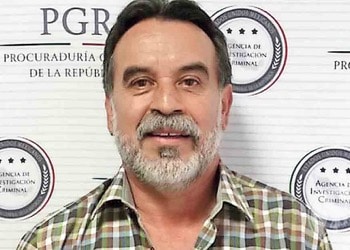The DEA has announced what it claims is the largest kingpin designation ever made against a Mexican drug trafficker and criminal organization with virtually no public profile.
On August 9, the Drug Enforcement Administration (DEA) announced that following an investigation spanning several years, the US Treasury Department’s Office of Foreign Assets Control (OFAC) was targeting Raúl Flores Hernández and the Flores Drug Trafficking Organization. OFAC targeted 22 Mexican nationals in total, as well as 42 businesses, for “providing support” to Flores and his organization’s drug trafficking activities, according to a press release.
Mexico’s Attorney General’s Office (Procuraduría General de la República – PGR) cooperated with US authorities in the actions, according to the DEA, and in a rare move seized a number of assets including the Grand Casino in Guadalajara. The seizures in Mexico are “part of a larger collaborative effort” to use financial sanctions to disrupt Mexican drug trafficking organizations, according to the DEA.
Among those designated along with Flores were Mexican professional soccer legend Rafael Márquez Álvarez, the captain of the Mexican national team, and Mexican singer Julio César Álvarez Montelongo, a famous Norteño band leader who has been nominated for several Latin Grammys. The DEA and OFAC allege that the two men “acted as front persons” and “held assets” on behalf of Flores and his organization.
Flores and his organization allegedly maintained “strategic alliances” with Mexico’s Sinaloa Cartel and Jalisco Cartel New Generation (Cartel Jalisco Nueva Generación – CJNG), which allowed them to operate in Guadalajara, Jalisco, and Mexico City since the 1980s, the DEA stated.
InSight Crime Analysis
Mexico’s PGR has confirmed that Flores was arrested in July and is currently being held in a Mexico City jail, according to reporting by Proceso. An alleged independent drug trafficker as well as a service provider and money launderer for the CJNG, Flores has managed to maintain an incredibly low profile despite having reportedly operated as a major player in Mexico’s criminal underworld for more than 30 years.
A US Treasury Department official told InSight Crime that Flores moved millions of dollars worth of cocaine to the United States during his career. But a former official in Mexico poured water on those claims, saying, “Flores might have been an investor in shipments? Sure. Was he operationally involved? Maybe not so much.”
But there is agreement that Flores was a rare diplomat in the drug business because he managed to maintain good working relationships with the CJNG and the Sinaloa Cartel simultaneously. The targeting of so many businesses in Mexico — including restaurants, real estate companies and a sports club — speaks to an expansive and sophisticated money laundering operation.
The last OFAC designation of a Mexican cartel came in May of this year and targeted a similarly little known criminal network — the Ruelas Torres Drug Trafficking Organization. At the time, InSight Crime reported that that action was likely an attempt to crackdown on the criminal organizations benefiting directly from the opioid epidemic in the United States.
SEE ALSO: Mexico News and Profiles
Given Flores’ alleged role as a major money launderer for the CJNG, it could be that US authorities are also trying to tighten the net around Nemesio Oseguera Cervantes, alias “El Mencho,” founder and leader of the CJNG, who is one of the three remaining most-wanted capos on the DEA’s list, alongside Rafael Caro Quintero, who was released from a Mexican prison in 2013, and Ismael Zambada Garcia, alias “El Mayo,” one of the original leaders of the Sinaloa Cartel. It is likely that targeting such a major strategic partner of both the CJNG and the Sinaloa Cartel will inconvenience the criminal operations of both networks.
Arguably, the fact that Flores is so little known reflects not only his stealth and discretion, but also the continuing fragmentation of Mexico’s traditional drug cartels and the demise of their infamous and notorious leaders. The extradition of Joaquín “El Chapo” Guzmán to the United States this year marked in some ways the end of an era; few drug lords who are household names remain alive or at large in Mexico today.
Meanwhile, Mexico is reeling from the targeting of football star Rafael Márquez and his alleged relationship with Flores Hernández. Organized crime has long had links to celebrities and sports in the past. Arguably the most famous relationship was between notorious Colombian drug lord Pablo Escobar and Medellín’s Atlético Nacional soccer team. Escobar was a chief contributor to the team, and he used their ticket sales and lucrative broadcasting contracts, among other things, to launder some of the Medellín Cartel’s massive profits.
SEE ALSO: Coverage of Soccer Crime
More recently, Jorge Messi, the father of famed soccer star Lionel Messi, was under investigation in 2013 for allegedly laundering drug trafficking money for a Colombian criminal group. But other soccer stars and teams have also been accused of suspected ties to drug trafficking organizations in the region.
In Mexico, celebrities and sports stars or owners have been linked to organized crime on a few ocassions in the past. In 2013, an attorney for the Beltrán Leyva Organization (BLO) alleged that famed Mexican singer Jenni Rivera — who died in a plane crash in 2012 — was contracted to perform at events and parties for the cartel. But Rivera denied having ties to drug traffickers after being detained at Mexico City’s international airport for coming into the country with more than $50,000 in cash in 2009. And one of Mexico’s best-known actors, Kate del Castillo, has been investigated for her relationship with former Sinaloa Cartel leader “El Chapo,” though she has never been formally charged with any crimes.

